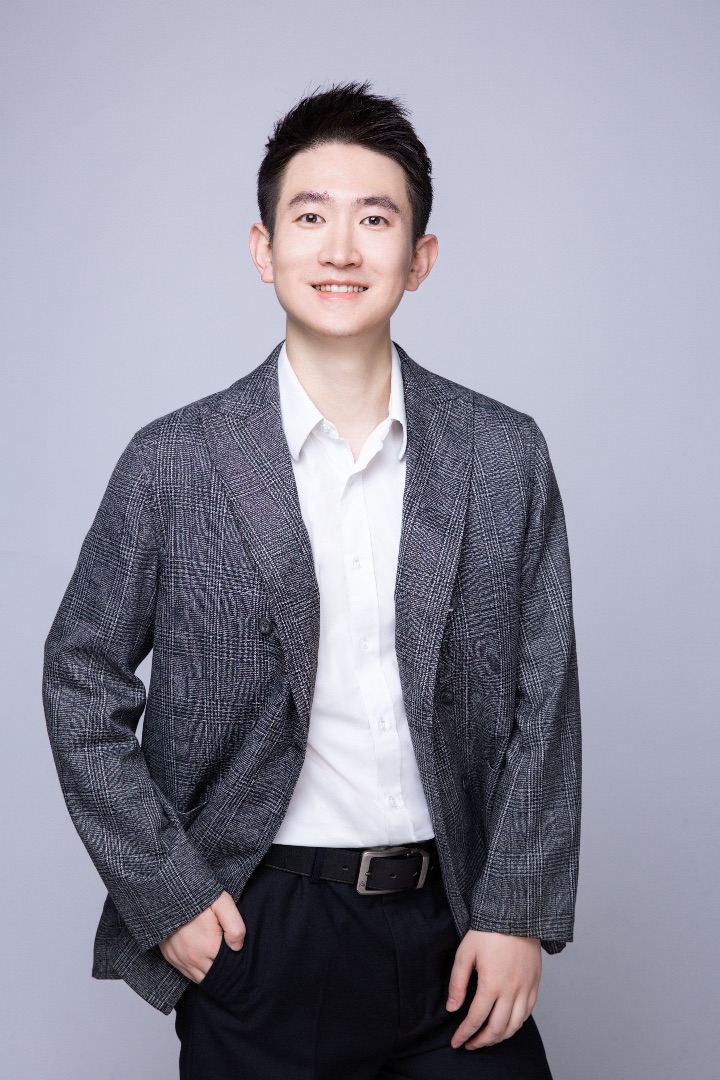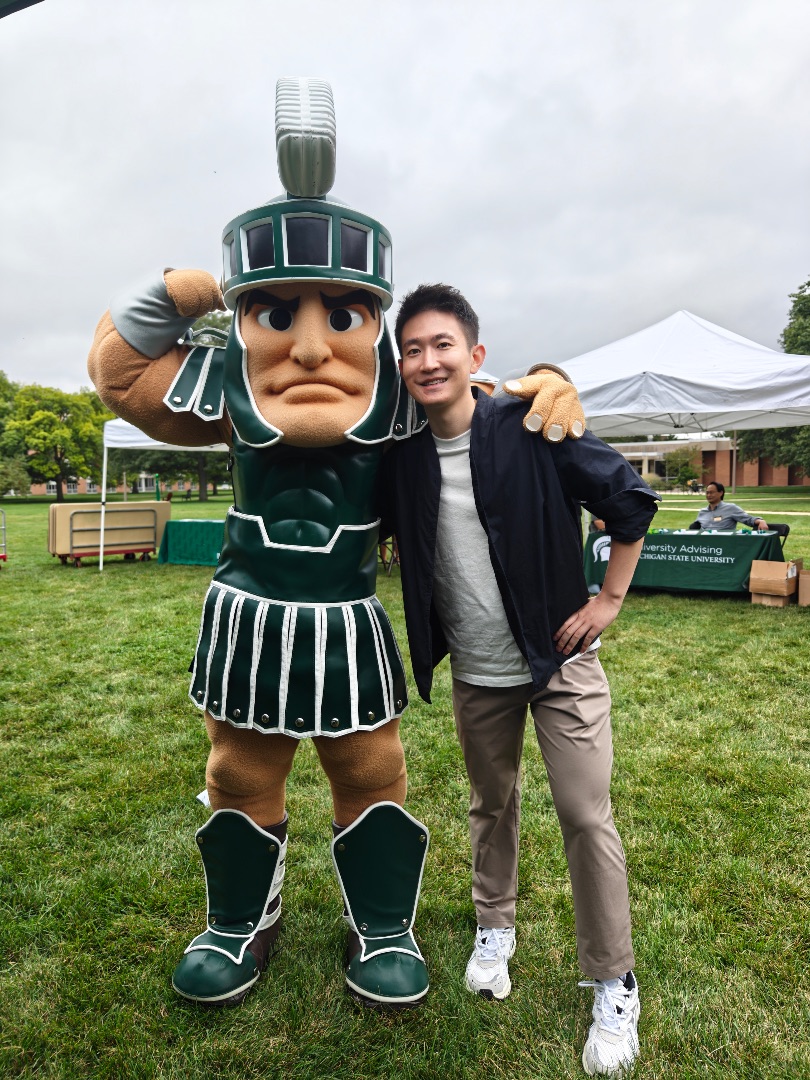
Di Wang is the director of employer and alumni relations in the Office of China Programs. Holding a master’s degree in higher and postsecondary education from Columbia University and a bachelor’s degree from the University of Oregon, he brings a unique perspective to the career journeys of graduates. Based in Shanghai, China, Wang supports students and alumni by sharing insights into the dynamic job market and building strong employer connections in China. He designs and teaches career courses and programs for MSU students planning to pursue their careers in China.
Tell us a bit about your experiences as an international college student in the U.S. and how it helps you in your current role serving international students at MSU.
I chose the University of Oregon for my educational studies in 2012 because it offered a strong program that aligned with my interests. Additionally, I’ve always enjoyed nature and outdoor activities, and Oregon’s beautiful landscapes and opportunities for exploration made it an ideal place for me to live and study.
Then, I went to D.C. for an internship, in a Fulbright scholarship program, focusing on MENA (Middle East and North Africa). From there, I decided to pursue my master’s degree in higher education. I knew I wanted to be somewhere on the East Coast.
As an international student having experienced both coasts and two very different schools — Oregon and Columbia University in New York City — my diverse experiences really shaped my value system and career goals overall. It allowed me to see a lot in terms of the way people live.
My international student experience profoundly shaped my value system and helped me identify what I wanted to pursue in life. Being immersed in a diverse environment allowed me to see and appreciate various lifestyles, connecting with students from different nations and cultures. Through these experiences, I developed the mindset of a global citizen, embracing diversity, adaptability and cross-cultural understanding as essential aspects of my personal and professional life.
Describe what your job entails and what it’s like working for an American university on the other side of the globe.
My job involves a combination of career advising, teaching and building connections with Chinese employers and alumni to create opportunities for MSU students. I teach a one-credit career education course and host workshops to help students prepare for their professional journeys. Working for an American university from the other side of the globe allows me to represent MSU internationally, developing partnerships and bridging resources between China and the U.S. Although the time difference requires flexibility, such as evening meetings, I find it rewarding to connect students virtually and collaborate with campus stakeholders to provide well-rounded support. At home, I share my space with my dog, Bobo, who brings a lot of energy and joy to my days.

How does your role support Chinese students and alumni? And is your position unique, or do most universities have someone in this position?
My position is unique because I am in China while supporting students here in East Lansing. Other career advisers are mostly based in a specific college, but I support all Chinese students across the university.
I can also support domestic students who want to work in China. I work in Career Services to have students come to the sessions I host.
In what ways do the U.S. and Chinese job markets differ? What can students do to make themselves stand out in either job market?
The U.S. and Chinese job markets differ significantly in hiring practices and the approach to evaluating candidates. In China, the recruitment cycle for new graduates is closely tied to university timelines, with structured hiring seasons and formal campus recruitment programs that provide clear opportunities for students to connect with employers. In contrast, the U.S. job market is more decentralized, with hiring taking place throughout the year based on company needs. To stand out in either market, students should tailor their application materials to align with local expectations, highlight relevant skills, and prepare for the unique interview styles and processes in each context.
What advice do you have for Chinese and other international Spartans as they grow their expertise and want to find internships/fellowships/etc.?
Career development is so individualized; it needs to be based on students themselves. Students need to be engaged early with Career Services and explore at the very beginning. I encourage students to attend career fairs with employers to see what the job market will look like to establish a foundation of knowledge. An individualized approach to career advising will be helpful.
One of the assignments I give students is to write a resume,and I always encourage them to talk to me individually so we can tailor it and highlight their unique experiences. Engaging as early as possible is important to have a more holistic understanding and create a well-rounded plan. I give students a professional development checklist to complete each year, rather than waiti until their senior year to build a resume. Starting early ensures they have meaningful experiences to showcase, making the resume-building process much smoother.